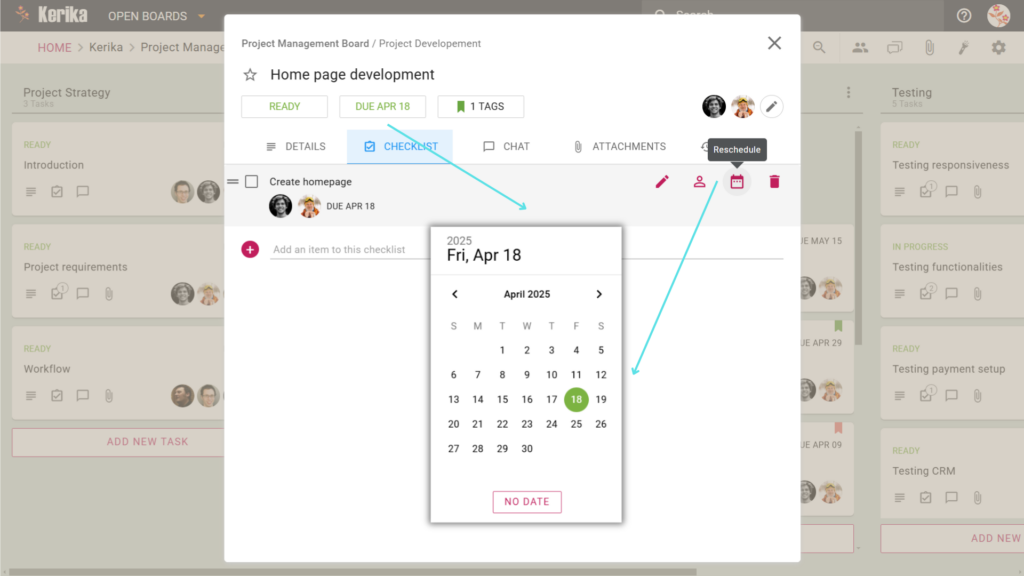Deadlines are the invisible threads that tie projects together, ensuring that tasks are completed on time and teams stay aligned. Whether you’re working on a single task or breaking down a project into smaller, actionable steps, clear due dates make all the difference.
How to Set and Manage Due Dates

Click here to check out the board
Efficient deadline management starts with the ability to set due dates on tasks and their components. Here’s how it works:
- Set Due Dates on Task Cards
- Open the task card you’re working on.
- Click the “Due” button to access the calendar view.
- Select a due date or adjust existing ones as needed.
This ensures the task is anchored within the project timeline and keeps everyone updated.
- Break Down Bigger Tasks with Checklists
- Use the Checklist feature to divide a large task into smaller, more manageable items.
- Each checklist item can have its own due date, making it easy to track progress at a granular level.
- Assign specific checklist items to different teammates, clarifying individual roles while staying within the context of the larger task.
- Use the Checklist feature to divide a large task into smaller, more manageable items.
Best Practices for Deadline Management
- Be Specific: Avoid vague timelines, set exact dates to avoid confusion.
- Prioritize Realistically: Balance workloads by assigning due dates that reflect the complexity of tasks.
- Regularly Review: Update deadlines as project scopes evolve to maintain realistic expectations.
Conclusion
Integrating due dates into task management, whether for full tasks or individual checklist items, helps teams maintain clarity, focus, and productivity. By thoughtfully setting and managing deadlines, you create a workflow that adapts to your team’s needs while ensuring that nothing falls through the cracks.